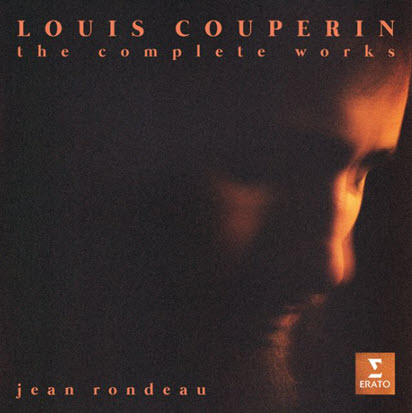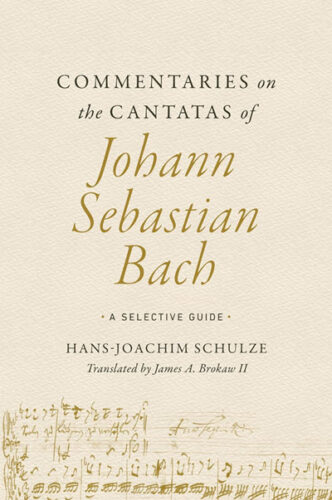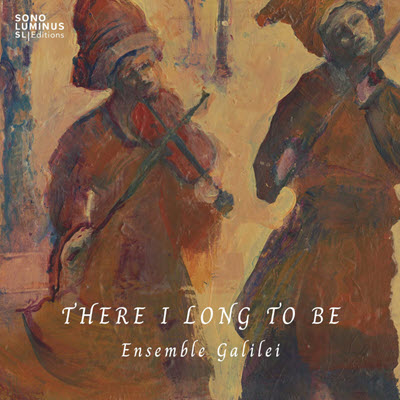by Aaron Keebaugh
Published February 28, 2022
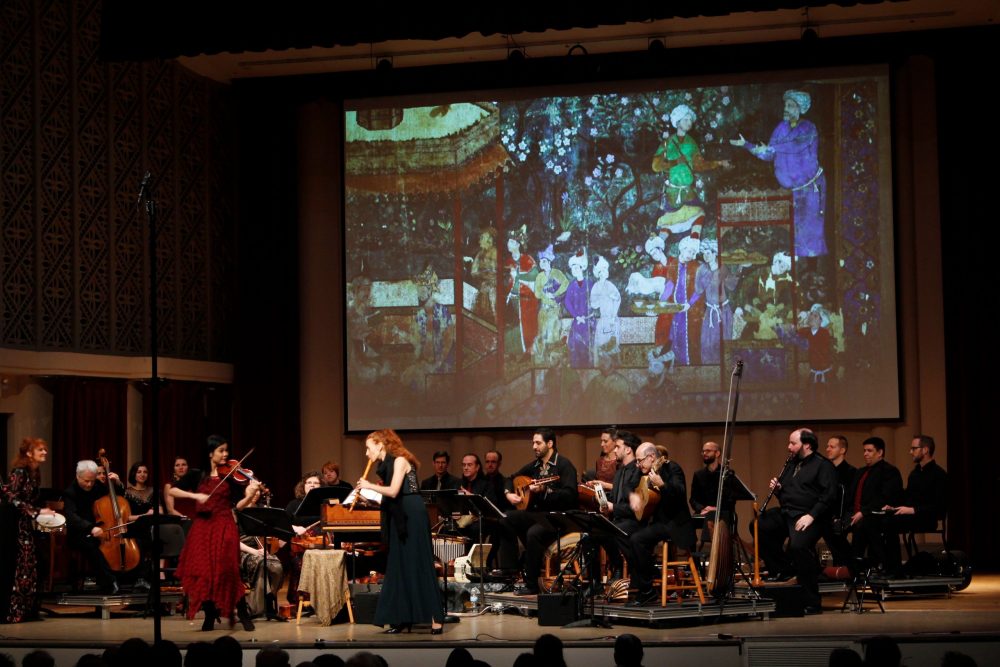
O Jerusalem! City of Three Faiths. Apollo’s Fire, directed by Jeannette Sorrell. Avie AV 2501.
Jerusalem lives long in cultural memory, the Holy City forever a poignant symbol for both reflection and utopian idealism. Yet the ongoing conflict between Jews, Muslims, and Christians in this city on a hill remains an all-too-familiar tragedy.
Jeannette Sorrell and Apollo’s Fire, based in Cleveland, seek the themes that unite these diverse cultures in O Jerusalem!, an intriguing new recording that explores folk, religious, and high-art traditions. Played with fire and reverence, the music on this disc conveys the eternal hope that Jerusalem still holds for millions around the world.
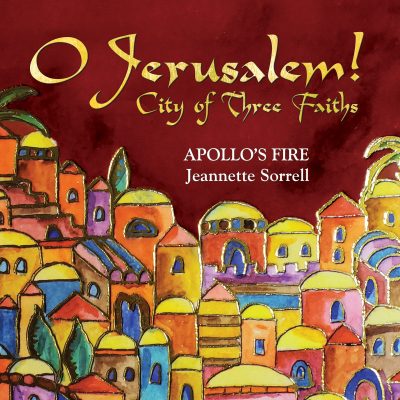 Sorrell arranged much of the music from traditional sources. These live recordings offer a musical tour through each of the city’s four neighborhoods: Jewish chants recall the glories of Solomon’s temple, Armenian dances bring celebratory zeal, while Muslim chants and European vocal works reflect a deep-seated spirituality.
Sorrell arranged much of the music from traditional sources. These live recordings offer a musical tour through each of the city’s four neighborhoods: Jewish chants recall the glories of Solomon’s temple, Armenian dances bring celebratory zeal, while Muslim chants and European vocal works reflect a deep-seated spirituality.
Sorrell’s take on “In me kero, Madre, a Yerushalayim” recasts this familiar Sephardic chant with tasteful Middle Eastern zest. Baritone Jeffrey Strauss shapes his line with subtle tosses of the voice, while soprano Amanda Powell answers with fiery intensity. The Apollo’s Singers, joining in unison, build the music to a plaintive cry.
Vocalist Daphna Mor makes “Tzur mishelo achalnu” into a warm song of praise, the orchestra bringing a driving, down-home quality to its fervent rhythms. Subtle trills and wide melismas wring the pathos from the lullaby “Nani Nani.” And the phrases of the Armenian chant “Havun-Havun” unfold elegantly from René Schaffer’s distant cello before ending in a calm.
Other works showcase the dexterity of the orchestra’s soloists. “A la Una yo nací” takes on wild abandon through Ronnie Malley’s accordion. “Taxim” features Malley on the oud, his rhythms taking on virtuosic flair. “Kuando el Rey Nimrod” bounds in a dance-like groove as soprano Powell, tenor Sorab Wadia, and chorus find the energy from the shifting meters.
The “Muslim call to prayer” offers some of the disc’s most arresting musical moments, where independent lines, chanted by Malley and Rex Benincasa, weave together for soulful effect. “Ki eshmera Shabbat,” with its mix of chant and measured phrases, showcases baritone Strauss in mournfully distant tone.
Claudio Monteverdi’s wonderfully powerful vocal writing is on offer with two selections from his Vespers of 1610. Tenor Jacob Perry renders the familiar “Nigra sum” with buttery tone and florid motion to capture a sense of longing. In “Gloria Patri,” he provides fine complement to Nathan Hodgson’s vocal echo, the two lofting a vibrant melisma over pure-toned choral harmonies.
The ensemble singers also join Strauss and Wadia in a reprise of “Tzur mishelo achalnu,” where the free-wheeling phrases unfold in rich harmony. The orchestra traverses the traditional Arabic “Longha Nahawand” with the verve of a village jam session. “Santa Maria, Strela no Dia” brings firm yet satisfying resolution to these performances. Remembering Jerusalem, this music suggests, is ultimately a cause for celebration.
Aaron Keebaugh, a musicologist, teaches at North Shore Community College in Danvers, MA. He has written for The Musical Times, Corymbus, and The Classical Review, for which he serves as regular Boston critic.

